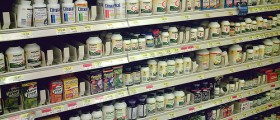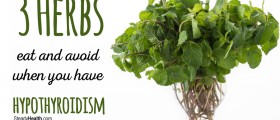General Information: What is Tin?
Tin (Sn) is an element that has long been known to be vital to the health of some animals. Scientists have long debated whether this metal also plays an important role in human general health, but more recent research has uncovered that some tin intake indeed has health benefits for humans as well. At the same time, ingesting large amounts of tin can be toxic.
The average human daily intake of tin ranges from 1 to 3 mg in modern times. In the past, when tin cans and pans were used commonly, the average tin intake was ten times bigger.
Researches conducted on animals have shown that an insufficiency of tin can cause reduced growth, loss of hearing, loss of hair and reduced feeding efficiency.
Tipton and Shafer reported, in their important paper on the topic, that after sudden death, traces of tin in human tissue had been found in organs that include the brain, aorta, kidney, liver, muscle, ovary, spleen, pancreas, uterus, prostate and stomach but not in the thyroid gland.
What Are the Health Benefits and Potential Side Effects of Tin Intake?
The processing of tin in the human body is connected to iodine in the same manner as calcium is linked to magnesium. Iodine maintains the health of the thyroid gland while tin supports the adrenals. Suffering from a tin deficiency together with a lack of vitamin C and vitamin B in the diet are causes of low adrenals. Since tin and adrenals control the left side, an insufficiency of this metal can potentially lead to left-sided heart problems. This complication can then, in turn, lead to breathing difficulties and asthma.
A lack of tin in the body may result in depression and fatigue, while adding tin to your diet could significantly boost your energy and has positive effects on your mood. Increasing your intake of tin can be also helpful if you are suffering from headaches, insomnia, digestion and skin problems as well as different pains and aches. The side effects of tin supplements can, however, include digestive problems or skin reactions.
- The Provisional Tolerable Weekly Intake for tin is 14 mg/kg body weight and recommended maximum permissible levels of tin in food are typically 250 mg/kg (200 mg/kg UK) for solid foods and 150 mg/kg for beverages.
- A food survey suggested that the contents of almost 4% of plain internal tinplate food cans contain over 150 mg/kg of tin and over 2.5 million such cans are consumed every year in the UK alone.
- Despite this, in the last 25 years, there have been no reports of acute effects attributable to tin contamination in the range 100-200 ppm.
Reported toxicity of tin is connected to the excessive consumption of food stored in tin containers, in which case the symptoms were nausea, vomiting, and stomach pain. Excessive tin levels are swiftly excreted from the organism and there are no long-term negative effects. Inorganic tin is much less toxic to the human organism compared to other elements like cobalt and copper.
In one research study, it was proven that tin can help in the treatment of clinical depression, though the condition is usually associated with an imbalance in a patient's levels of lithium, magnesium, copper, sodium, manganese and other vitamins. Increased tin intake has the potential to help in the treatment of depression only in cases where the underlying cause of the depression does not lie in a slow thyroid (hypothyroidism), low blood pressure (hypotension), low adrenals, and chemical imbalances.
Tin is an ingredient that is incorporated into some toothpastes. This metal is also added to asparagus to improve the taste, and additional used as an effective remedy for stomach parasites.
How Can You Increase Your Intake of Tin Through Your Normal Diet?
There are some easy ways to achieve this. Tin can be found, for example, in herbs like nettle, barberry, yarrow, licorice, Senna, dog grass, juniper, milk thistle, valerian, lady slipper, althea, yellow dock, kelp, devils claw, pennyroyal, Irish moss, blessed thistle, red clover, bilberry and dulse.
Tin is also present in all vegetables and fruits in small amounts. Plants absorb tin from the soil; hence level of tin in them depend on quality of the soil.


















Your thoughts on this
Loading...